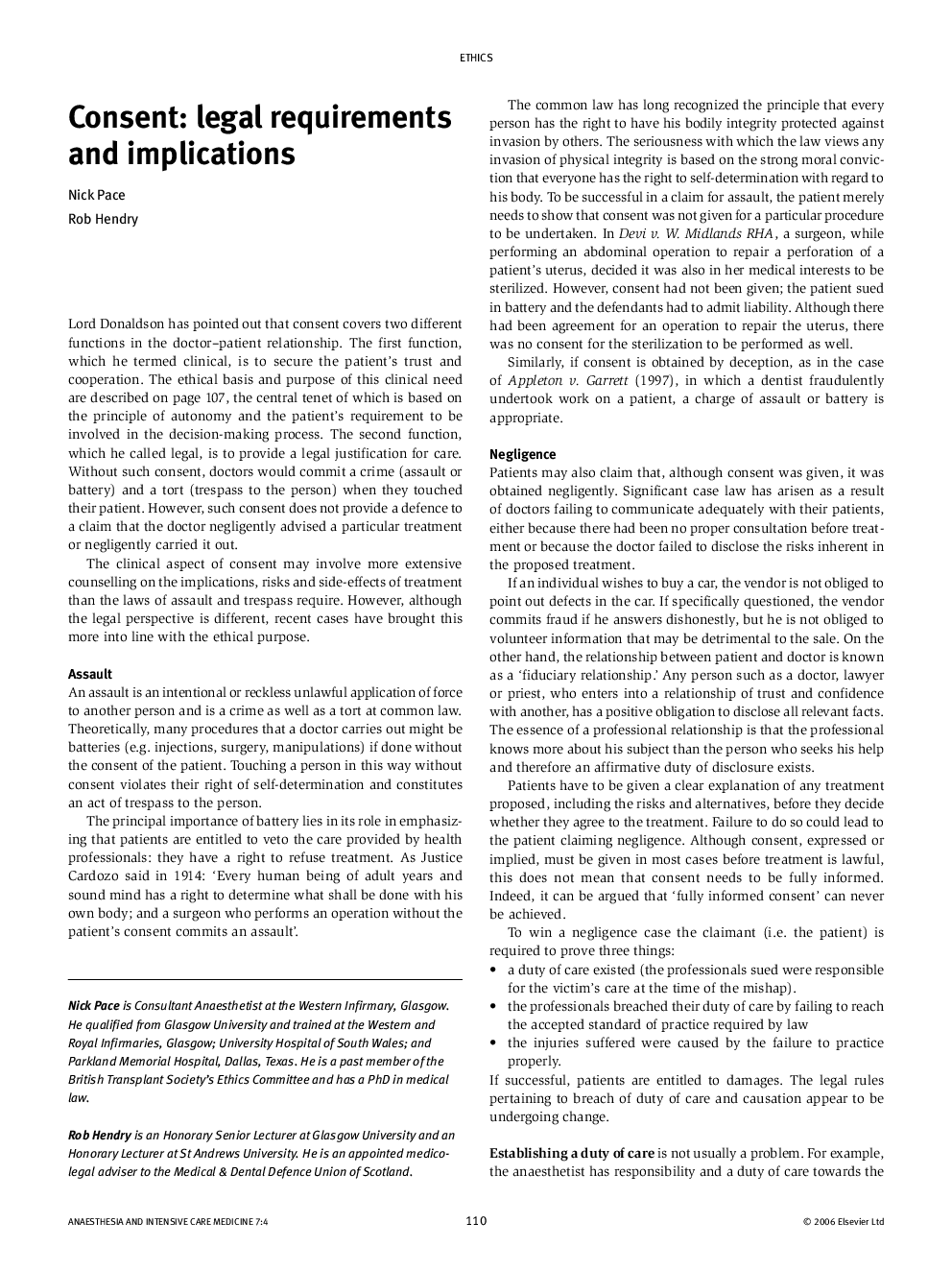| Article ID | Journal | Published Year | Pages | File Type |
|---|---|---|---|---|
| 2743931 | Anaesthesia & Intensive Care Medicine | 2006 | 4 Pages |
Consent covers two different functions. The first is to secure the patient's trust and cooperation. The second is to provide a legal justification for care. Every person has the right to have their body integrity protected. If consent has not been given for a particular procedure the patient can claim to have been assaulted. However, if consent has been given but there was no adequate communication regarding risks, then it could be claimed that the consent was obtained negligently. In such a case the patient would have to prove that, firstly, a duty of care existed, secondly, that the duty of care was breached, and finally, the breach caused injuries suffered. The standard of care was established many years ago as a professionally based one (i.e. established by medical experts). However, recent legal cases are changing this and medical evidence and expertise can be overridden by the courts. This is likely to happen if the judge believes that the view held by the experts could not be held by reasonable doctors. With respect to consent, patients can claim that they were given insufficient information and thus the doctor behaved negligently. Legally, disclosure is the key item and chief condition in the act of giving consent. However, from and ethical perspective, consent has less to do with the liability of doctors due to failure of information disclosure and more to do with the autonomous choice of patients.
